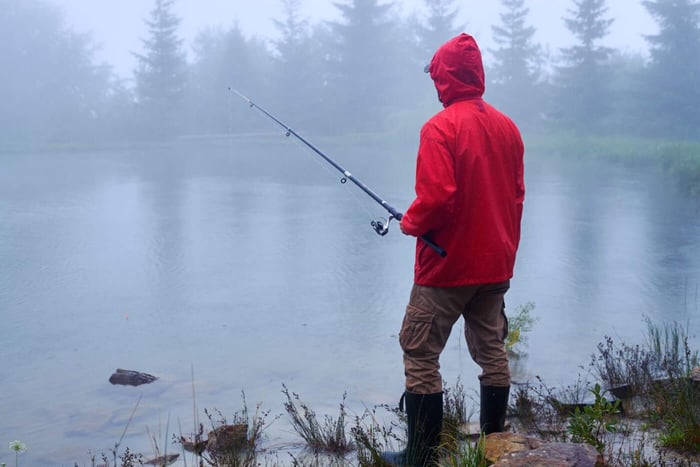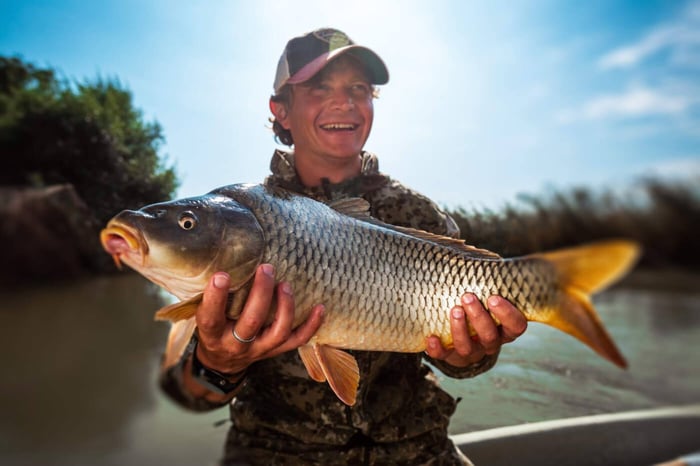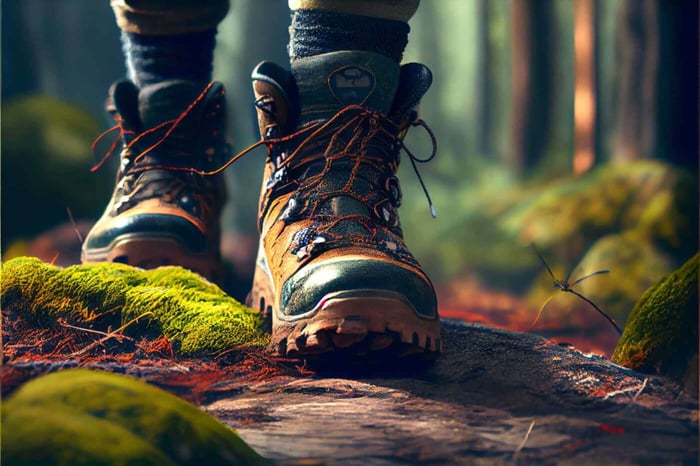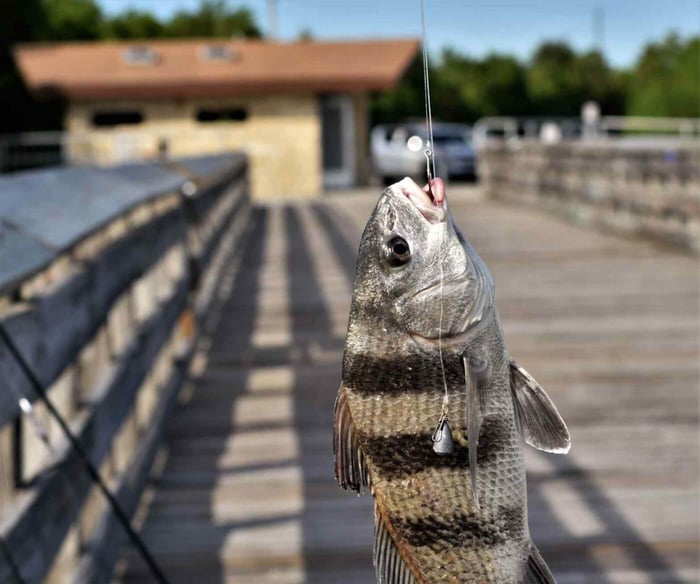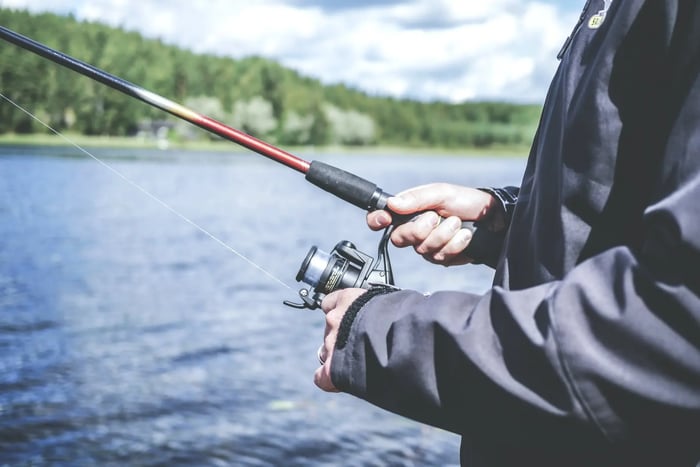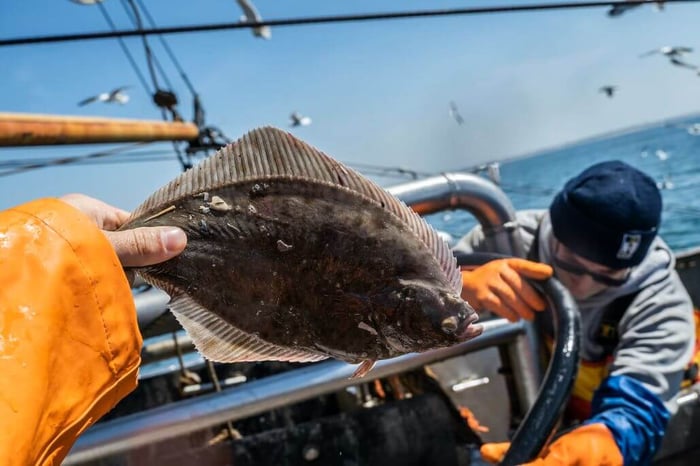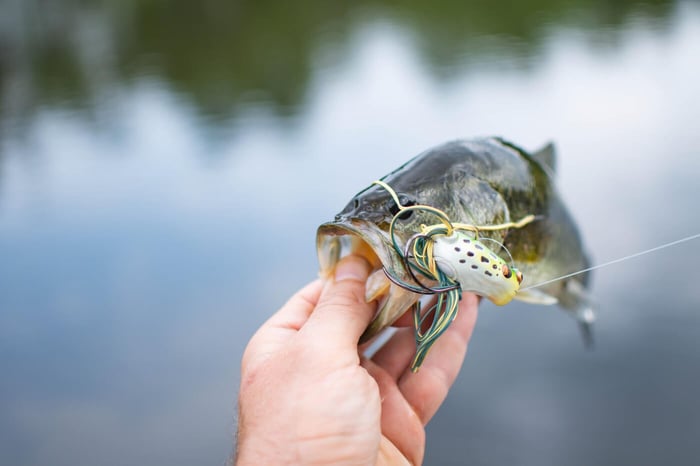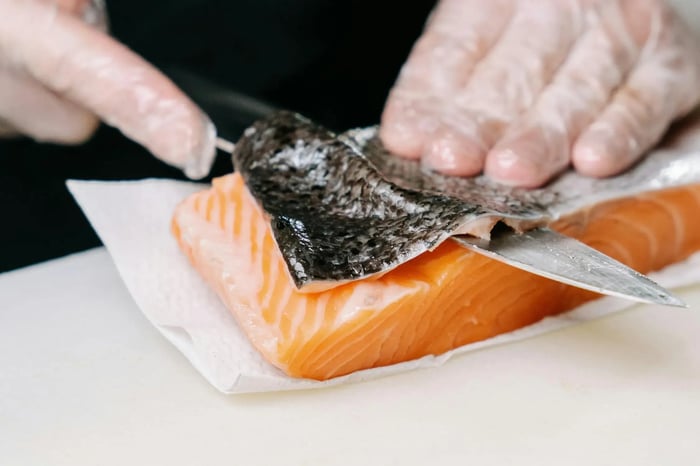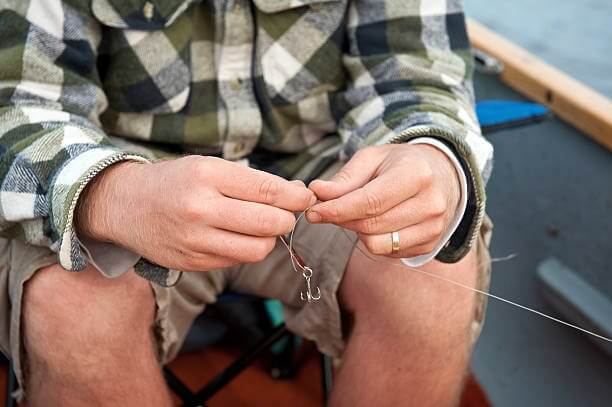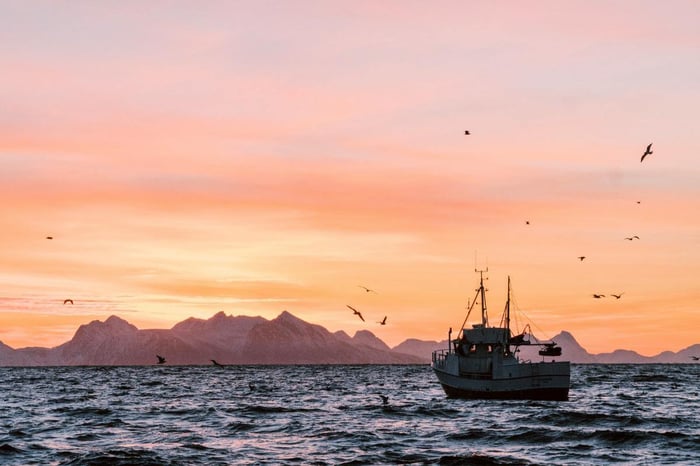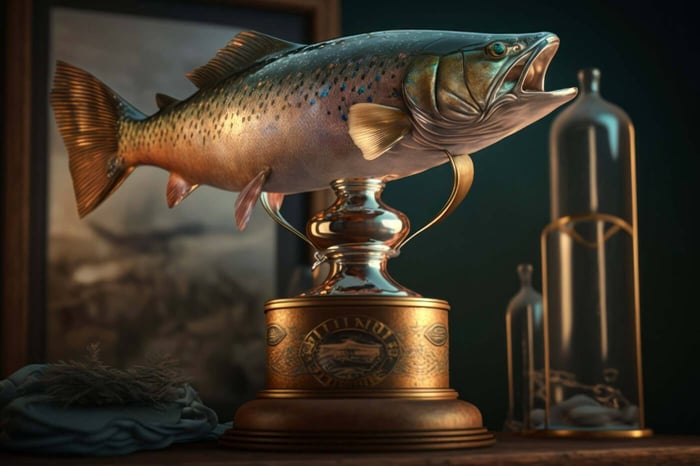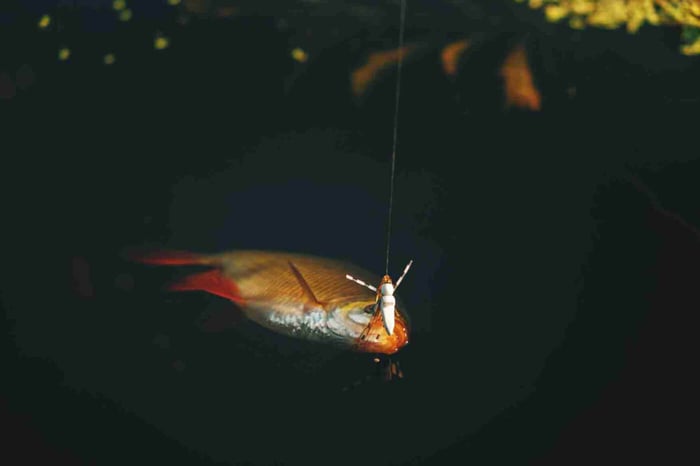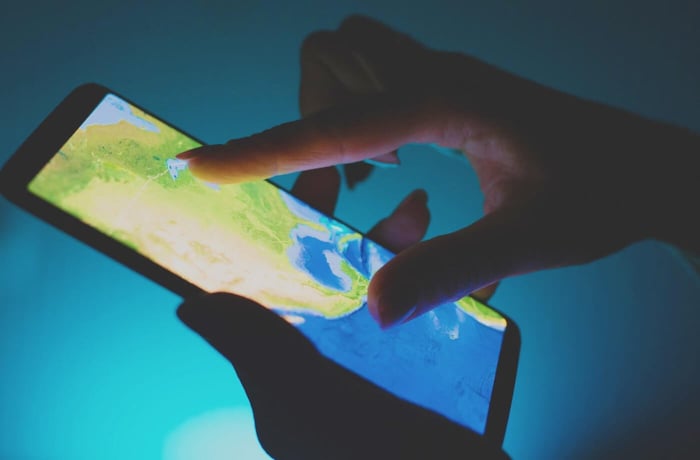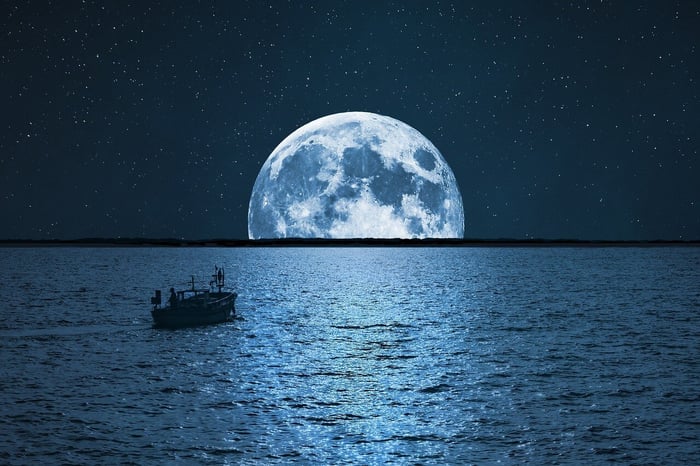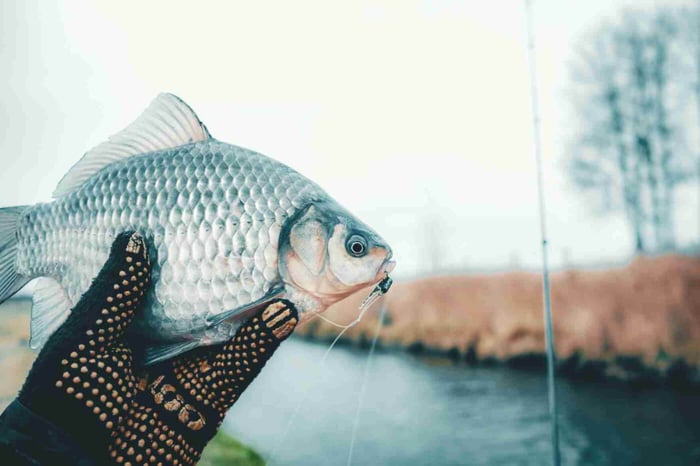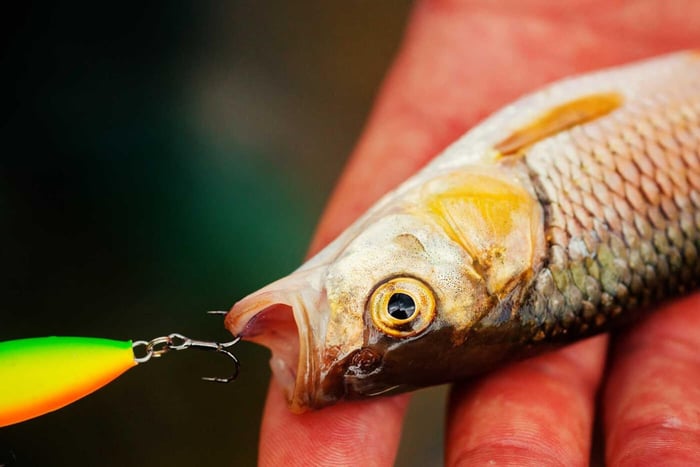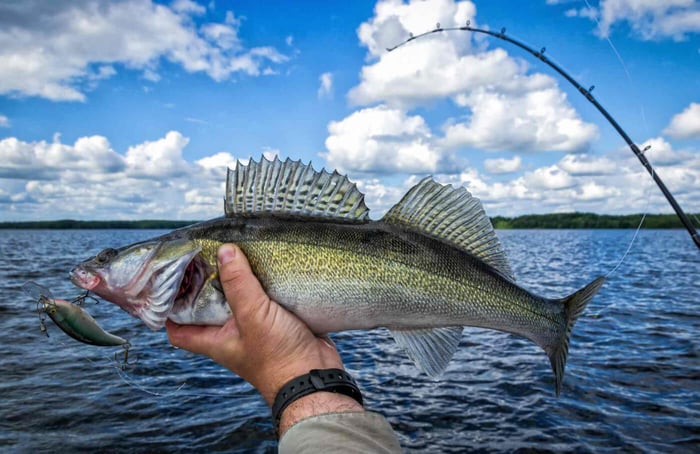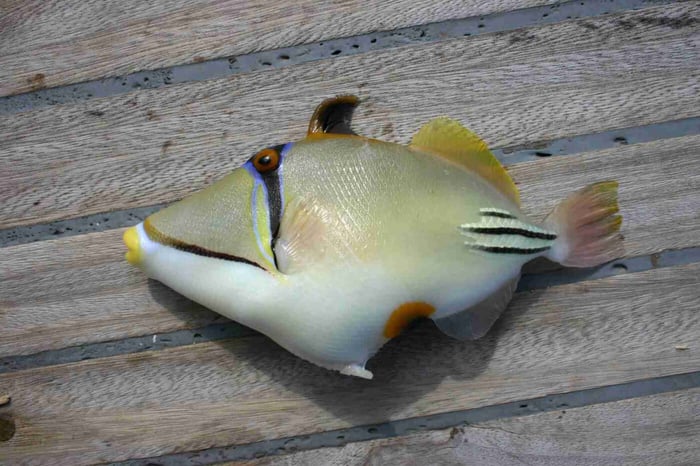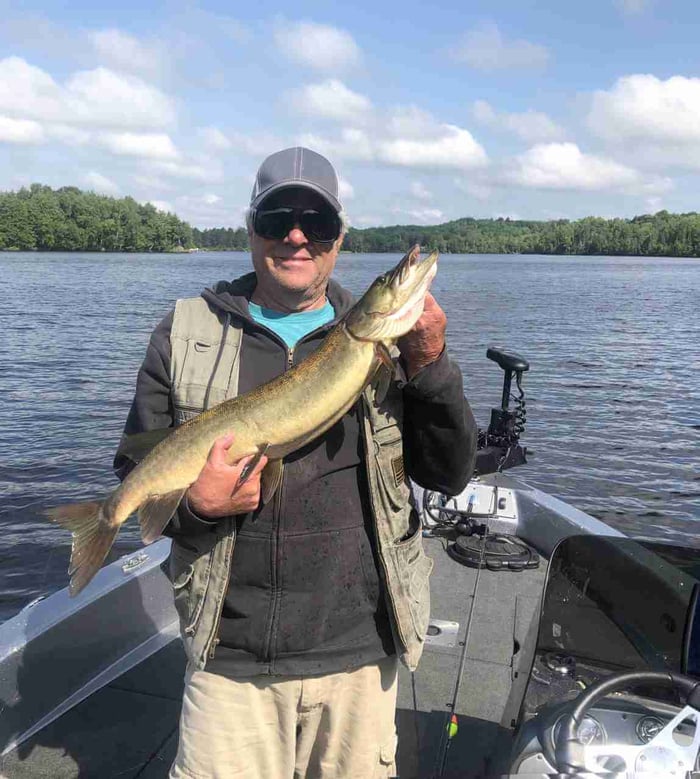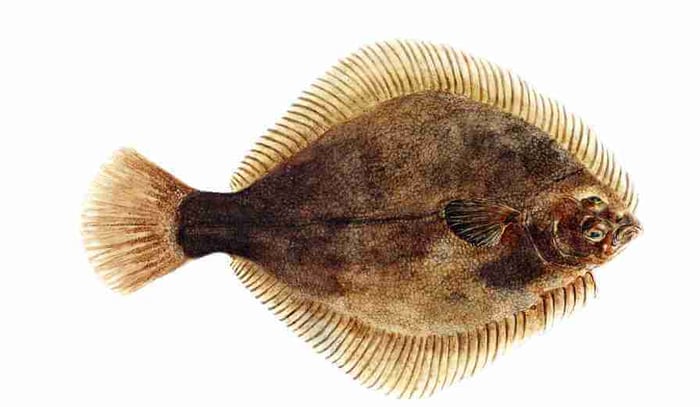If you were considering fishing but the weather forecast called for rain, you may be debating whether to get your gear before the storm or wait until the weather brightens.
One of the critical elements that will determine your fishing technique is the weather. Your chances of fishing success will develop if you know the relationship between weather and fishing.
Following a rain or a rainstorm, your odds of catching fish can go either way. Why? Fish can sense changes in their surroundings. They can detect variations in oxygen, barometric pressure, and water. These factors affect fish behavior and responses to you as an angler fishing in their waters.
Without further ado, the following information will answer your question: "Is it better to fish before or after it rains?"
How do air pressure and water temperature impact fishing?
The air pressure and the water temperature affect how well you do while fishing in any waterways after it has rained.
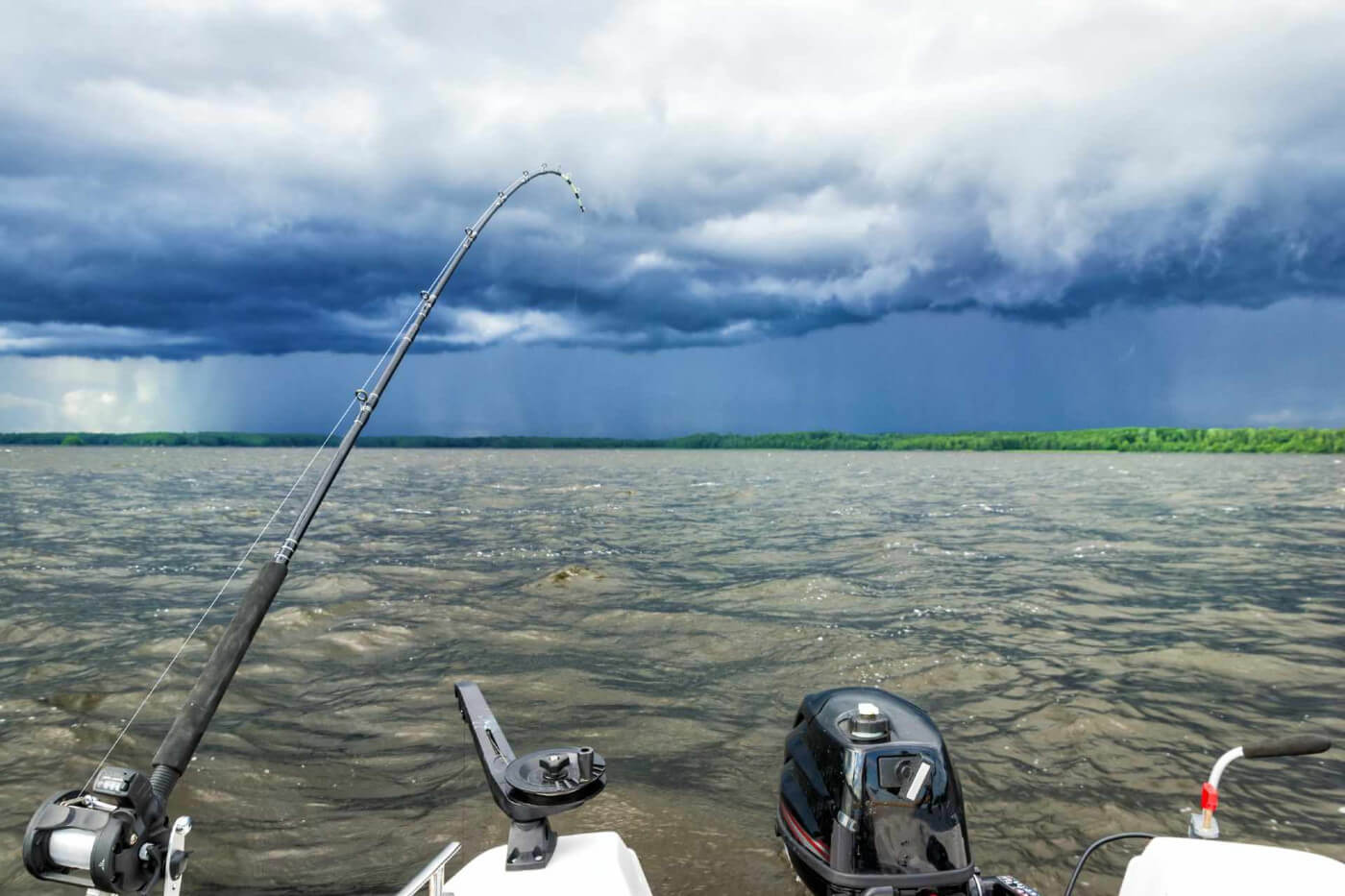
Weather front effects on atmospheric and barometric pressure
A cold front or approaching rain frequently causes drops in air pressure. Air bubbles are forced to the lake or river's surface as the pressure decreases. These bubbles also carry minute organisms and plant debris upward. Bass fishing is ideal because fish follow them when they are feeding.
After a cold front has passed, we often have less success fishing. It happens because, after a storm, barometric pressure rises. Fish become tired and less prone to bite as a result. They might keep away from the surface of activity declines.
Water temperature impacts
Many seasoned fishermen know that temperature changes can affect fishing and how fish act and react. You must understand how it influences your catch if you want to have a successful fishing excursion.
In warm waters, fish's metabolism speeds up. They breathe more quickly. As a result, raising their oxygen requirement. Bass and other fish are at their most active under these circumstances. However, their metabolism slows and they become less active when the water is cold.
Different fish species will become more active in warm water that has recently had warm rain. This ideal set of circumstances makes for excellent bass fishing in a lake or river.
Fish do not like warm or cool weather followed by freezing cold rain either. They thus become less active.
The chart below illustrates how variations in barometric pressure affect the weather and fish.
Going fishing at the beginning of a storm is a good idea if you want to catch a big fish since this is when the bigger fish begin to hunt down the smaller fish looking for shelter in the shallower waters.
Is It Ideal to Go Fishing in the Rain?
Yes, fishing in the rain is an excellent idea as long as there isn't a severe downpour and no nearby lightning.
You can anticipate gaining the same advantages while fishing after a good rain. The only exception is if a cold front is going through and bringing rain. The best action in this situation is to stay home.
Fishing in the rain has unique difficulties not present when the other weather conditions affect fishing more apparent.
The decision to go fishing in the rain depends on a few circumstances.
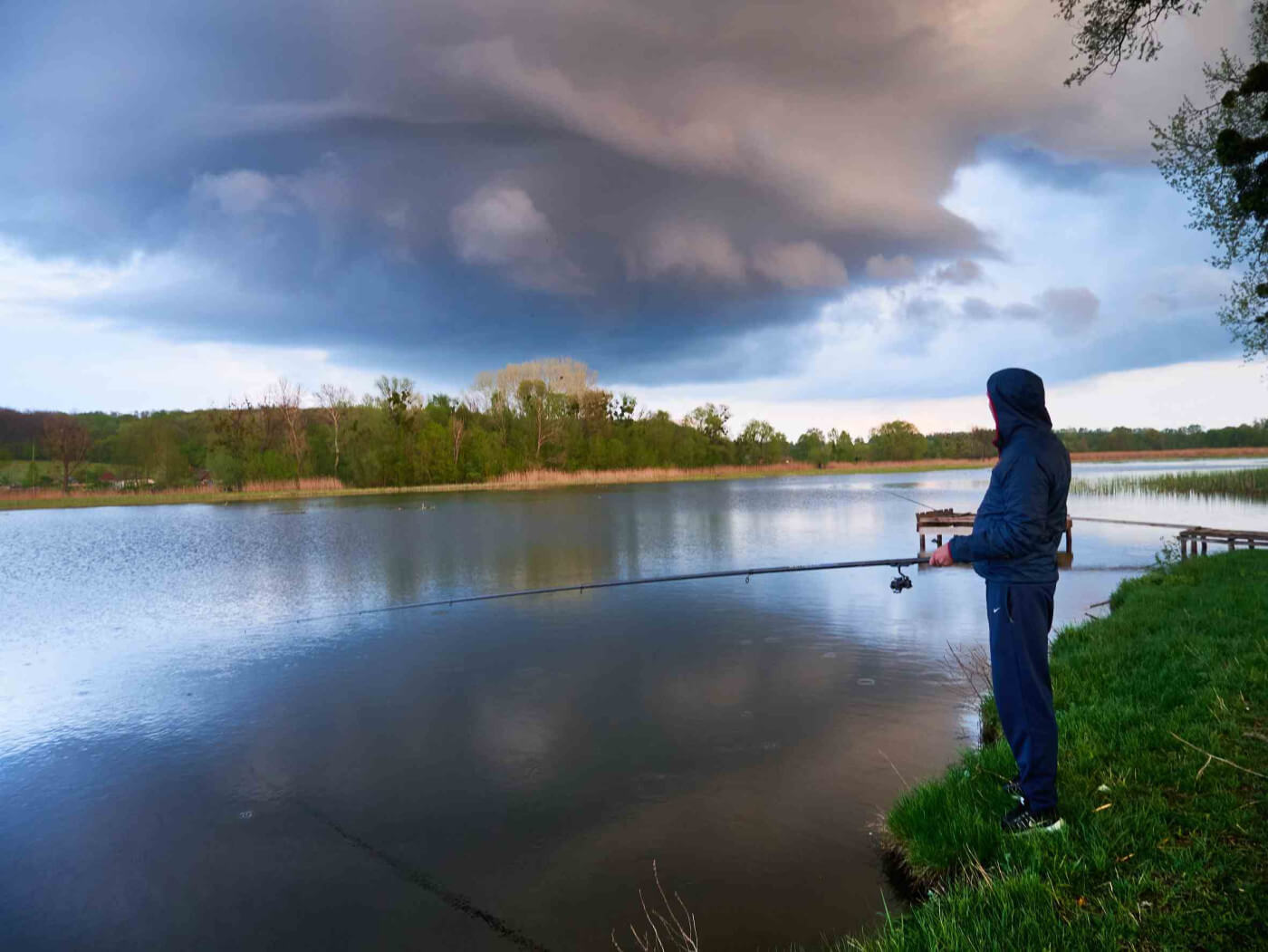
Below are the following circumstances.
1. The intensity of the rain.
Whether you should keep fishing ultimately depends on how hard it is raining.
Light to moderate downpours can produce some favorable fishing conditions. Find a warm location and carry on casting after you've done that.
However, an intense downpour during a storm may generate more hazards and troubles than it is worth to continue fishing.
You should seek cover indoors (or inside your car) if the rain gets too intense to continue outside until the storm starts to clear up. You should call a stop to your fishing expedition for the day and resume it later if the storm does not start to lighten.
When fishing during a downpour, use caution and keep an ear out for thunder and lightning. If an electrical storm is coming, you should wait to go fishing and find the right cover immediately.
2. The outside temperature.
Sometimes it is warm enough outside to appreciate it, yet rain starts to pour. Many of us have experienced this and know what it is like.
If the weather is warm enough for you to continue fishing comfortably, by all means, keep fishing! On the other hand, we fully understand the feeling when it is already cold outside, and the impending rain just makes it too cold to remain outside.
However, if it becomes too cold, you'll feel uncomfortable and risk hurting yourself. In any case, the fish are likely to look for warmer water. Save time looking for fish not there in the wet and cold.
3. Your ability to see the water.
Fish cannot see your line because of the heavy rain, which is one of the many advantages of fishing in the rain.
The rain is obstructing the fish's vision, but it is also obstructing yours. Do not test safety boundaries if you cannot see enough to cast effectively.
The safety of yourself and others should always be one of your top priorities when fishing in or close to any body of water.
Rainstorms may result in flash floods or other issues that put local fishermen in danger.
Since perceiving danger is the most excellent way to prevent it, you will have a different ability to stay safe if the visibility on the water becomes too obstructed.
Always exercise caution, and if you need help determining the state of the water, cease your fishing expedition early.
4. The clothing you wear and protection.
Before continuing your fishing adventure, ensure you are appropriately attired and have suitable protection nearby.
No matter where you go, dress and pack for all four seasons because the weather is continuously changing.
Wear clothing that will prevent water from coming into close contact with your skin. Wearing damp clothing at a low enough temperature can result in hypothermia.
Additionally, be sure to have a backup coat or jacket if the temperature drops below what is appropriate for fishing.
Even while what you wear when fishing might not seem very important if you get too cold, you might not be able to wait out the storm's finish and will have to end your fishing trip early for no other reason than poor planning.
How Does Fishing Affect the Intensity of the Rain?
Fishing can be difficult if it's raining a lot. Water levels, clarity, and fish patterns can all be affected by the intensity of rain. You can determine whether something is helpful by considering all of these factors. Fish do bite in the rain.
Water Level
The rainfall affects the water level by determining how much runoff a body receives. Runoff from heavy rains may send worms and other animals to the river. Runoff is produced when the ground can no longer contain the water, allowing it to flow to a lake or river.
The strongest currents are seen in locations with high runoff. Since there is more significant instability due to these powerful currents, more oxygen is present. As most fish will require this for metabolism, this draws fish.
Clarity of Water
Water clarity in a lake or river is impacted by heavy rain. Mud lines where runoff and clear water combine can be expected to be seen.
If the rain is warm, this murky water occasionally carries worms and grubs that draw baitfish. Due to their less feeding activity, frenzy, bass, trout, and other fish will be easier to capture. Fish seek warmer water temperatures if the runoff is from melting snow or freezing rain.
Smaller fish find it challenging to identify the larger predatory fish attempting to consume them in murky water.
Patterning in Fish
The intensity of the rain will also have an impact on fish patterning. Fish behavior and typical eating habits are referred to as patterning. Fish typically migrate to the point where freshwater from the outside enters the main body of a lake or river. This is so because it usually has more food and air.
Things to Consider When Fishing After Rain
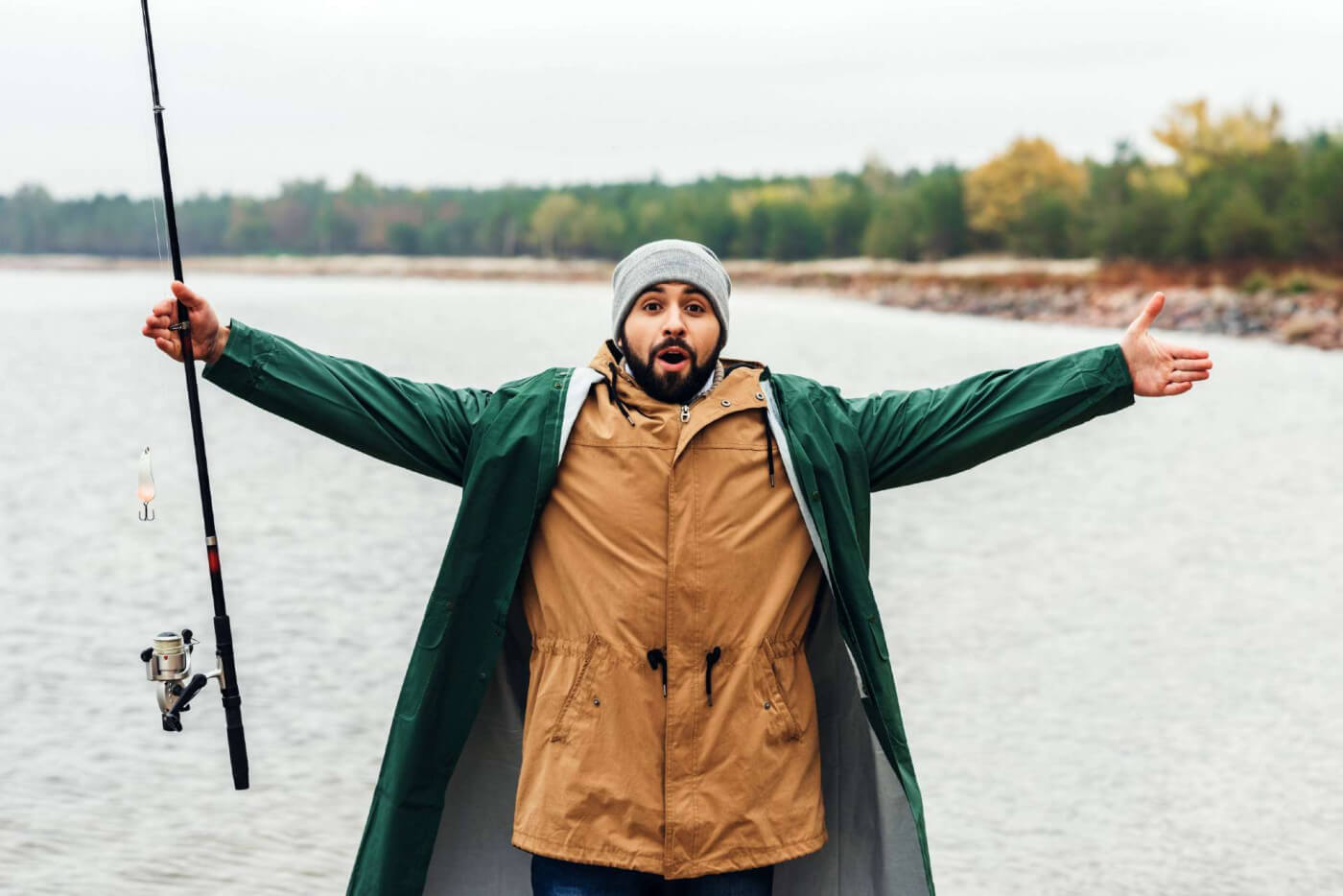
The majority of people advise going fishing before a cold front or rainstorm. However, there are situations when the chilly rain may give you a better chance of catching something.
Fishing may be more successful after rain if there has been a prolonged period of hot and dry weather.
Why?
Fish activity decreases when the weather is like this because less food is on the surface. Rainfall can chill the surface, luring insects.
Additionally, it can stir the water, causing organic material to rise to the top. Due to both of these variables, more fish will be there to feed on the surface.
Here are some tips to help you capture that prize fish and catch bass on your upcoming fishing excursion even after the rain.
Choose Lures Effectively
After the rain stops, the lake or river's water stirs, which reduces its purity. Fish will avoid lures and baits in more transparent water because they can see them. Since fish in deeper water won't be able to detect them properly, this allows employing a wider variety of lures.
Fishing with a vertical lure and bait is recommended because fish are sluggish after much rain. In these circumstances, you may prefer to use jigs, salamanders, or plastic worms (you may pick from various plastic worm kinds).
Look for Feeder Creeks
If you keep an eye out for feeder creeks, it should be simple to find fish after rain. The runoff area where the land pumps fresh rainwater into the lake or river is where feeder creeks are.
Plankton and fish will be attracted to this location since it will be oxygen-rich. There will also be a difference in the water's temperature, which draws fish.
Observe the Clouds
The period of brightness from the sun usually comes after the rain or rainstorm has passed. Due to these bright conditions, bass and trout will dive deeper and seek cover. When the sky is still cloudy, fishing is best.
The skies will remain cloudy, and the water will remain chilly. Fish will be less inclined to congregate in shaded areas or seek out murky or deep water.
Let's say there is a slight drizzle here and there, and the rain is about to end. You, therefore, reasoned that leaving for some lake fishing would be okay. But first, watch for thunder and lightning in the skies.
By doing this, you can avoid what happened to the two Florida men from Fort Myers.
While they were fishing in the Caloosahatchee River, lightning struck their rod. Fortunately, nobody was wounded.
Does Saltwater Fishing change in the rain? Yes, in the same manner, that rain has an impact on freshwater fishing.
Is Saltwater Fishing Affected by Rain?
The effects of the rain on saltwater fishing are much the same as those on freshwater lakes, rivers, and streams.
There are situations when the rain may not be on your side. The rain can be your opponent if you prefer to sight fish for redfish or possibly bonefish on the flats.
Clearwater is necessary for this fishing form so you can see the fish you are after.
Seeing your prey can become nearly impossible if it rains heavily enough to muddy the water.
The rain will have little impact if you are bottom fishing or fishing far offshore.
What About Fly Fishing After a Rain
It is one of the most fruitful times to fly fishing right after it rains!
Consider this: one of the significant advantages of fishing after rain is the abundance of insects and flies in the water.
When a trout, salmon, bass, or redfish is acting aggressively, now is the ideal time to cast a fly to them!
But while a moderate drizzle can greatly increase your chances of success, a heavy downpour could completely wreck the day!
A heavy downpour can also increase the current flow if fishing in a river or stream, making it more challenging to hold your bait stationary long enough for the fish to see and strike it.
Searching for small pockets of slow-moving water at bends, eddies, and along the banks is advisable if you meet a hard downpour but still want to go fishing.
Artificial Lures vs. Live Baits
Most anglers use artificial lures when fishing during and after rain unless they are after catfish or another bottom-feeder species (in which case, they use live worms).
Some caught fish with jigs and plastic worms when retrieving my line while keeping the bait higher in the water column, but most of the time, you use a topwater lure or spoon.
The Heddon Super Spook is, without a doubt, an excellent topwater plug. These lures are available in a variety of sizes and colors.
Additionally, you can use them quite well to rain fish in saltwater for redfish and spotted sea trout and in freshwater for bass.
Even though some favor topwater lures for rainy circumstances, some also had some success using golden spoons.
In Conclusion
Even though a nice rain doesn't ensure you'll catch tons of fish, it can significantly boost your chances!
Temperatures, barometric pressure, and oxygen levels affect how well fishing goes after it rains. Another thing to think about is the severity of the rain. After some cool rains, it might not be the best time to go fishing.
Fish will have a higher metabolic rate following warm rains, making fishing more successful. This will compel them to seek feeding grounds in cleaner, cooler water.
Runoff, which brings organisms to bodies of water, is sped up by heavy rain. This increases oxygen levels while giving the fish food.
The fish migrates to fresh, clean water with more oxygen and food. So long as you consider other aspects, fishing when it rains is also beneficial.
Never go fishing when there is lightning nearby, just to be safe.
Remember to bring rain gear, too! No matter how well the fish are biting, getting caught in the rain without the correct rain gear may ruin the entire trip, especially if it's freezing outside.
